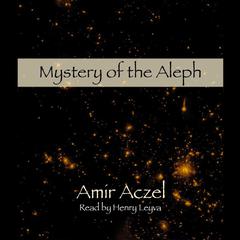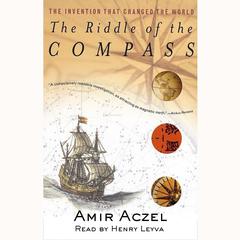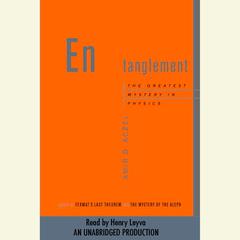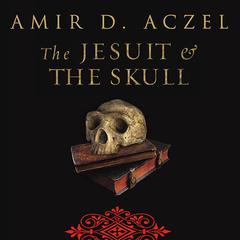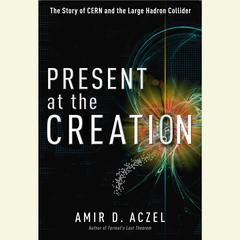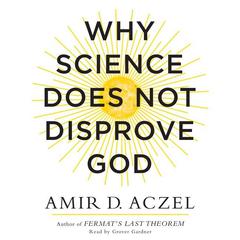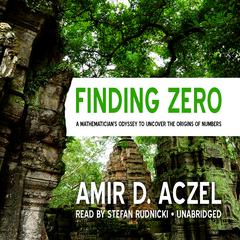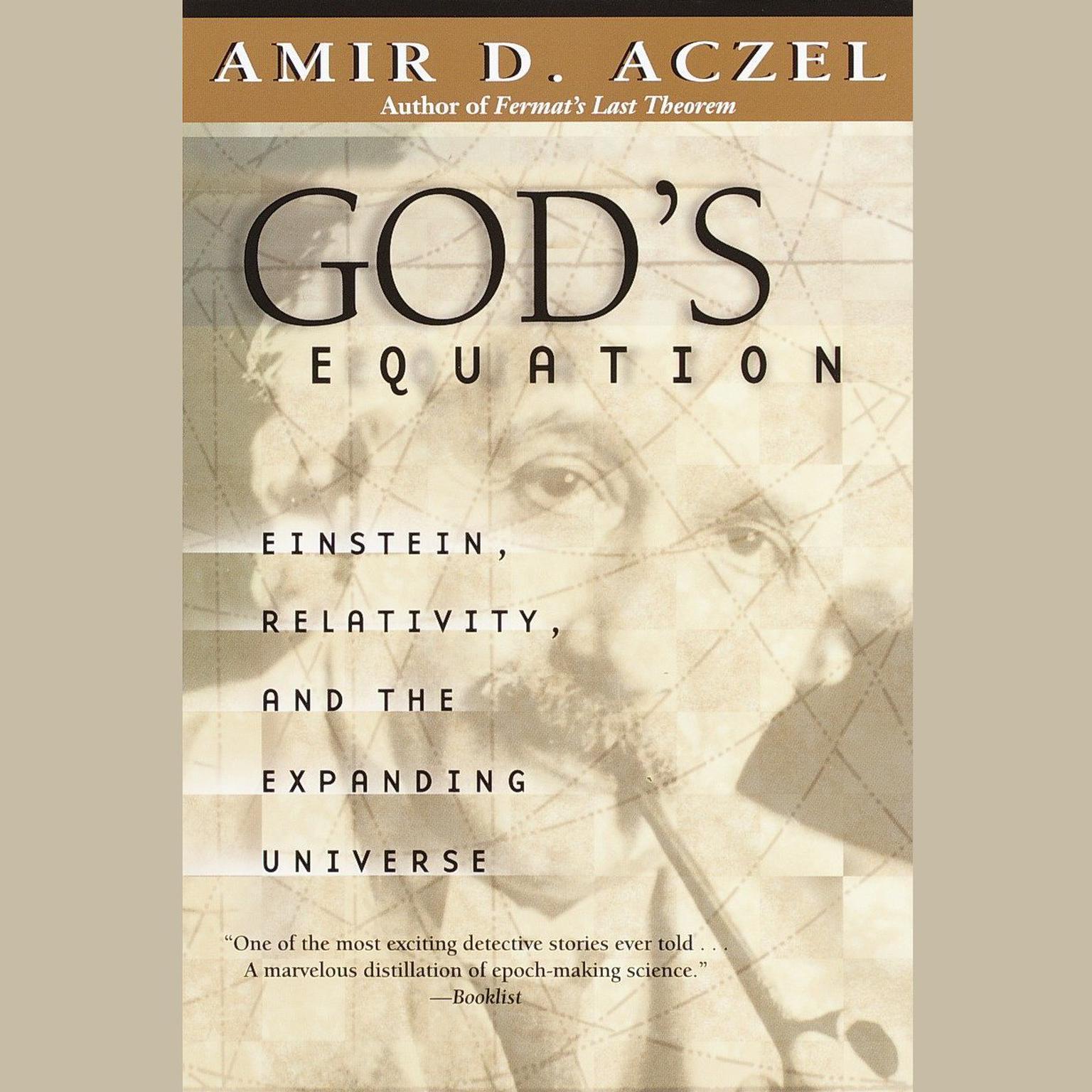 Play Audiobook Sample
Play Audiobook Sample
God's Equation: Einstein, Relativity, and the Expanding Universe Audiobook
 Play Audiobook Sample
Play Audiobook Sample
Quick Stats About this Audiobook
Total Audiobook Chapters:
Longest Chapter Length:
Shortest Chapter Length:
Average Chapter Length:
Audiobooks by this Author:
Publisher Description
Are we on the verge of solving the riddle of creation using Einstein's "greatest blunder"? In a work that is at once lucid, exhilarating and profound, renowned mathematician Dr. Amir Aczel, critically acclaimed author of Fermat's Last Theorem, takes us into the heart of science's greatest mystery. In January 1998, astronomers found evidence that the cosmos is expanding at an ever-increasing rate. The way we perceive the universe was changed forever. The most compelling theory cosmologists could find to explain this phenomenon was Einstein's cosmological constant, a theory he conceived--and rejected---over eighty years ago. Drawing on newly discovered letters of Einstein--many translated here for the first time--years of research, and interviews with prominent mathematicians, cosmologists, physicists, and astronomers, Aczel takes us on a fascinating journey into "the strange geometry of space-time," and into the mind of a genius. Here the unthinkable becomes real: an infinite, ever-expanding, ever-accelerating universe whose only absolute is the speed of light. Awesome in scope, thrilling in detail, God's Equation is storytelling at its finest.
Download and start listening now!
"Aczel writes about science (physics and astronomy) and scientists, mathematics and mathematicians all in terms that the curious-minded untrained person a.k.a. the layperson can easily come to terms with what is best known about the history ideas in these areas. highly recommended. "
— Maggie (4 out of 5 stars)
Quotes
-
“There is something startling on just about every page.”
— San Francisco Chronicle -
“It is a wonderful time to glance back over Einstein’s path in developing the field equation…fortunately, we have a fabulous guide in Amir D. Aczel.”
— Discover -
"[Einstein’s] field equation remains the closest thing we have to a divine blueprint for the universe…Aczel gives a very readable account of the science and the scientists involved.”
— Kirkus Reviews
God's Equation Listener Reviews
-
" This book spent way too much time on insignificant details, which made it boring. Einstein was many things, but boring was not one of them. "
— cheri, 6/20/2013 -
" Aczel writes about science (physics and astronomy) and scientists, mathematics and mathematicians all in terms that the curious-minded untrained person a.k.a. the layperson can easily come to terms with what is best known about the history ideas in these areas. highly recommended. "
— Maggie, 3/5/2013 -
" it was pretty good, i probably would have loved it if i liked math or science "
— Gary, 1/15/2013 -
" Its very interesting, but many of the concepts are beyond my understanding. All together it is an interesting book, but I think that it needs to be re read for full understanding. But at least now I begin to understand wny had trouble with high school geometry. "
— Christina, 11/14/2012 -
" Fascinating. Gotta love Quantum Physics and how even now this book is WAY outdated as far as the current science is concerned. "
— Rjt28orama7, 3/13/2012 -
" My sister-in-law gave us this book and I really like it. It helps a lot to have some understanding of chemistry and physics but I think someone who didn't have a science background could also really enjoy it. "
— Melissa, 3/10/2012 -
" Libro di grande soddisfazione. Un "racconto" scientifico trattato quasi come un romanzo: avvincente, scorrevole, interessantissimo e "quasi" alla portata di tutti. "
— Mirrordance, 5/25/2011 -
" it was pretty good, i probably would have loved it if i liked math or science "
— Gary, 1/26/2011 -
" Its very interesting, but many of the concepts are beyond my understanding. All together it is an interesting book, but I think that it needs to be re read for full understanding. But at least now I begin to understand wny had trouble with high school geometry. "
— Christina, 2/21/2010 -
" My sister-in-law gave us this book and I really like it. It helps a lot to have some understanding of chemistry and physics but I think someone who didn't have a science background could also really enjoy it. "
— Melissa, 9/19/2007 -
" This book spent way too much time on insignificant details, which made it boring. Einstein was many things, but boring was not one of them. "
— cheri, 8/11/2007
About Amir D. Aczel
Amir Aczel (1950–2015) earned his PhD in mathematics from UC Berkeley and is the author of the acclaimed Fermat’s Last Theorum, which was published in twenty-two languages. In 2012 he was awarded a Sloan Foundation grant; in 2004 he was awarded the prestigious John Simon Guggenheim Memorial Foundation Fellowship. From 2005 to 2007, Aczel was a visiting scholar at Harvard. He was also a research fellow in the history of science at Boston University. He wrote for Discover magazine online, regularly published in Scientific American as well as science pieces for the New York Times and Wall Street Journal. He often interviewed about science on radio and television, including recent appearances on NPR’s Talk of the Nation’s Science Friday.




